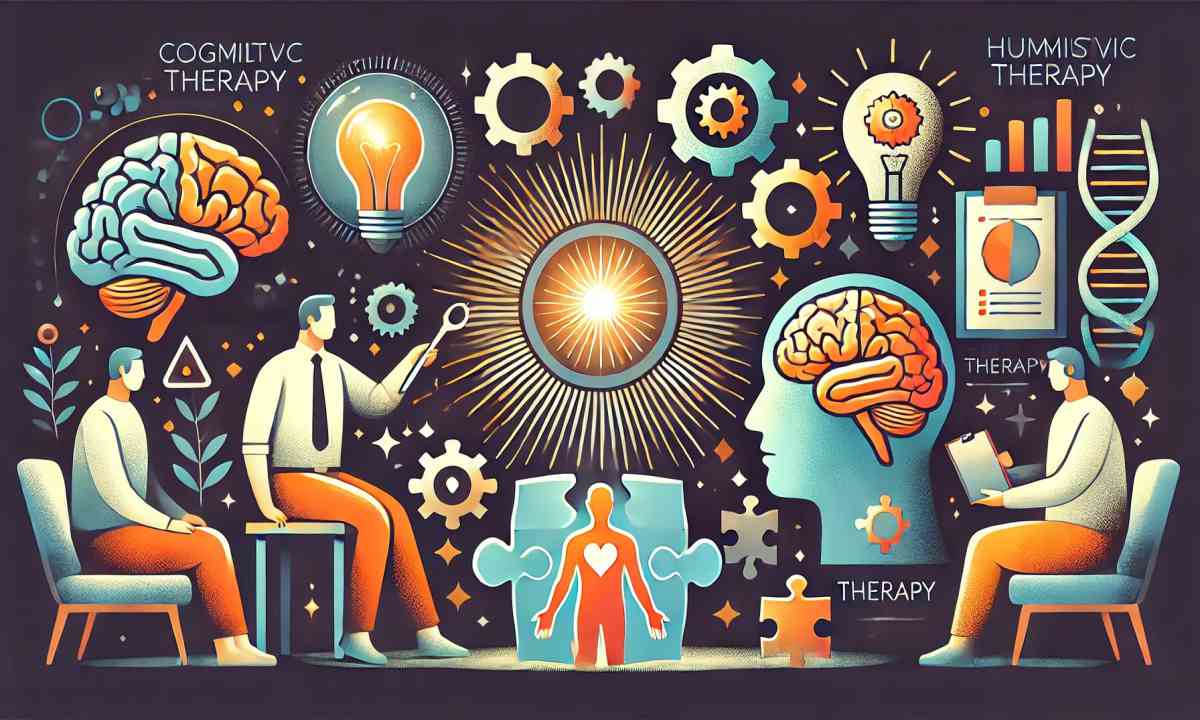Through insight therapy, the deeper levels of human ideas and emotions are explored in order to uncover the hidden causes and unresolved issues that shape behavior. This therapeutic approach emphasizes self-awareness as a transformative tool that aids individuals in understanding the reasons behind their emotions, behaviors, and relationships. Instead of providing temporary relief, insight therapy seeks to improve psychological issues over the long run by illuminating their root causes.
At its core, insight therapy is based on the notion that many mental health problems stem from unconscious processes. These could be repressed emotions, buried memories, or deeply held beliefs that subtly influence behavior in the here and now.
This approach is often linked to psychodynamic and humanistic traditions in psychology, which emphasize the importance of exploring past experiences, interpersonal relationships, and inner conflicts. Through dialogue and reflective exercises, clients embark on a journey of self-discovery that not only alleviates symptoms but also cultivates personal growth.
What Are Types of Insight Therapy?
Insight therapy encompasses a diverse range of methodologies, each tailored to explore and address the intricacies of the human psyche. Below are some of the most prominent types:
- Psychoanalysis: Rooted in the theories of Sigmund Freud, psychoanalysis focuses on uncovering unconscious desires and conflicts, often through techniques like free association and dream interpretation. It provides a profound exploration of the self, uncovering patterns that stem from childhood experiences.
- Psychodynamic Therapy: A more modern evolution of psychoanalysis, psychodynamic therapy is less intensive but similarly aims to understand unconscious influences. It emphasizes the therapeutic relationship as a means to explore emotions and recurring life themes.
- Humanistic Therapy: This includes approaches like client-centered therapy, developed by Carl Rogers. It emphasizes empathy, unconditional positive regard, and the belief that individuals possess an innate capacity for growth and self-understanding.
- Gestalt Therapy: Gestalt therapy focuses on present-moment awareness and integration of thoughts, feelings, and actions. It encourages clients to take ownership of their experiences and confront unresolved issues.
- Existential Therapy: This approach addresses the fundamental questions of existence, such as meaning, freedom, and mortality. It helps individuals find purpose and confront existential anxieties.
Each of these methods shares a common goal: to deepen the client’s understanding of themselves and their place in the world, fostering a sense of empowerment and clarity.

A Type of Insight-Based Therapy Is Quizlet
When considering digital learning tools like Quizlet, it may seem surprising to associate them with insight-based therapies. However, such platforms can serve as adjunctive tools in therapy, particularly for enhancing understanding and retention of therapeutic concepts. For example, therapists might create custom flashcards or interactive quizzes to reinforce self-awareness exercises, coping strategies, or key psychological theories.
Using digital aids can make therapeutic learning more accessible and engaging. Clients might, for instance, revisit concepts discussed in sessions, such as identifying cognitive distortions or understanding emotional triggers. While Quizlet itself isn’t a form of therapy, its adaptability allows it to support the insight-gaining process in a structured and interactive manner.
Is Psychotherapy an Insight Therapy?
Psychotherapy serves as an umbrella term encompassing various therapeutic approaches, many of which are insight-based. Insight therapy is indeed a cornerstone of psychotherapy, especially in modalities that prioritize self-awareness and the exploration of unconscious factors. Psychodynamic therapy, humanistic therapy, and existential therapy—all falling under the psychotherapy umbrella—exemplify this connection.
However, not all psychotherapy focuses on insight. Cognitive-behavioral therapy (CBT), for instance, emphasizes changing thought patterns and behaviors without delving deeply into their origins. Similarly, solution-focused brief therapy targets specific goals rather than exploring past influences. Thus, while many psychotherapies are insight-driven, others prioritize immediate symptom relief or skill-building over introspection.
Is Reality Therapy Considered an Insight Therapy?
Reality therapy, developed by William Glasser, is not traditionally categorized as an insight therapy. Its primary focus lies in addressing present behaviors and choices rather than uncovering unconscious motivations or exploring past experiences. The approach emphasizes personal responsibility, problem-solving, and the fulfillment of basic psychological needs, such as love, belonging, and autonomy.
While reality therapy may encourage some degree of self-reflection, its aim is more pragmatic than introspective. Clients are guided to evaluate their current actions and determine whether these align with their goals and values. Insight into deeper psychological layers is not the primary focus; instead, the therapy emphasizes actionable change and the development of healthier, more effective habits.
That said, elements of insight can emerge naturally during the process, as clients recognize patterns or beliefs influencing their behavior. In this sense, while reality therapy is not inherently insight-based, it can still foster meaningful self-awareness as a byproduct of its practical approach.
